|
If you've been following my recent blog posts you'll know that I'm currently obsessed with simplifying social media and removing white noise and clutter from all our output. What do I mean by white noise? I mean the endless automated quotes, the repetitive clickbait, the constant stream of 'you'll never guess what happened next' posts that plague our timelines and don't add any value to our messages or dilute the impact of what we're trying to achieve. The very things we tell our clients to avoid using if they want to be taken seriously.
In the first two weeks of my obsession, I switched off all my automated posts, all my curated content and instead focused on writing original content for my blog and for my regular scheduled posts. I also decided to only share articles that I'd personally read and agreed with, that I thought my followers would appreciate reading too. For me, this felt like the right thing to do. To focus on genuine, authentic content that helped my audience get to know me. It meant no distractions, no clutter, no white noise, just quality over quantity. Now, before we go much further, let me tell you a little about Klout. In the social media world we're all looking for validation, looking for a scoring system that somehow shows where we rank in relation to other social media professionals and influencers. To date, Klout is the only recognised measure we have. It's makers keep it's calculation algorithms a tightly guarded secret, but it's supposed to reward users based on value, engagement and genuine discussion on social media platforms with a score between 1 - 100, with 1 being the lowest and 100 being the highest. As a result of this scoring system (as invariably there is with any scoring system) a certain elitism has been created by those who have been able to break the fabled #Klout70 score and who are therefore more 'social' than the rest of us. Indeed, I've been approached by users offering me work all over the world if I could break that fabled barrier and become one of the 'elite'. If you're interested, my highest score to date has been 69, just 1 digit away from joining the elite and apparently from securing myself all the work I could want. Since removing all the white noise and automated drivel from my timelines, my score has slumped to an all time low of 64. It's dropped 5 points because I chose to focus on quality. It's dropped despite the increase in engagement I've seen from my followers and the support I've received for seemingly doing the right thing. But according to Klout, I am still in the top 0.1% of 'experts' in my field. And that is why Klout is no longer your friend. From my experience and anecdotal evidence from colleagues, it doesn't reward true engagement at all. It actually rewards noise, it rewards clutter, it rewards ceaseless broadcasting and talking 'at' people. All the things that we social media professionals denounce as bad practice. Yet we still cling to our scores, because it's the only measure we have. I don't think that's good enough anymore. Is someone with a Klout score of 69 less capable of managing your social media channels than someone in the elite #Klout70 group? I doubt it. Is someone with a score of 78 that spews other people's quotes out on their timeline every 5 minutes and has never replied to any of the tweets I've sent them more credible than someone with a score of 50 that writes all their own content and regularly talks to their followers? I wouldn't have thought so. Would you? Klout is not your friend. It's flawed and it's being exploited by 'influencers' who can effectively game the system by using the very tactics they tell their clients never to use. The very strategies we frown upon as being bad for your credibility are being used by professionals on a daily basis to get ahead. It's a ridiculous double standard, and it needs to stop. Only you can decide who you entrust your social media accounts, your online business presence and ultimately your credibility to. I think I know who I'd choose. But what do you think? Yours Socially M
0 Comments
Yesterday I was reminded of my childhood by a series of posts from a colleague in the social media world who decided to draw attention to the Twitter and Facebook efforts of Wimpy UK. Their quarter-pounder and, as I grew, their half-pounder burger became a regular Monday night treat for me as a child, a reward for performing well at swimming lessons. As a result, their inoffensive brand of fast-food and café/diner style eating-out has always held a fond nostalgic sentimentality with me. The individual in question drew attention to Wimpy's efforts to increase what we have come to call 'vanity metrics', encouraging 'likes', 'shares' and 'retweets. Whilst these practices have now come to be as unpopular as 'clickbait' and regarded as poor practice within our industry, it's not uncommon to see some brands taking their fledgling steps on social media without realising that this can be a big brand faux-pas. Admittedly, the posts also appeared to be 'one-size fits all' being shared on both Facebook and Twitter with little regard for which platform they appeared on or the functionality of each platform, as you can see below. However, perhaps we could forgive these naive mistakes as let's not forget, Wimpy have only had a presence online since 2012. Where the rest of us social media practitioners have had almost a decade to decide what works for us and to practice our methods, Wimpy are relative newcomers to social media. Let's face it, these little mistakes are harmless, they can be learned from and worked upon. We all had to start somewhere, right? They've clearly got the enthusiasm, they just need a little guidance, which we as professionals should be happy to offer. Or at least, that's what I thought as I read his initial posts on the subject on Linked In.
This guy had other ideas though, and single-handedly began trolling the brand with gusto. Trolling them, even though we could all agree that trolling is perhaps the single-most reviled practice on social media today. His comments on their Facebook page like "Hey, Wimpy the 1980's called and want their road-side cafe food photography back!", have since been removed, whether by Wimpy or himself it matters little. Not content with his little outburst on Facebook, he moved to his Twitter feed, where he enjoys verified status, with further criticism tweeting "What is going on at Wimpy - 'Share'? Do you mean RT?", "It's FAVE', Wimpy. 'FAVE'!" and "Answer: Wimpy's Social Media Strategy..." in response to their post about it being national joke day, asking followers to reply with their best joke to win a Wimpy voucher. Similar posts were also shared on his Linked In feed. Big brands must get trolled all the time though, right? Of course they do. But probably not by people that claim to be social media experts, people that make a living from helping brands improve their online offerings. Social media has given those of us with a deep understanding of it, great power. But (and I'm quoting Marvel again here, I know) with great power, comes great responsibility. Now I'm not saying that we as professionals need to become online vigilantes, we already have Anonymous for that. But what I am saying is that we are professionals and we should act like it. Instead of ostracizing Wimpy and countless others like them, we should be reaching out to help. We should be setting the example. None of us are infallible, as this very situation has proved. We are not gods, sitting atop our social media platform mountains, sneering at the mere mortals and trolling them with occasional witty thunderbolts aimed at their feeds. We are not the law when it comes to social media. We are not the Batman, but are actions do define who we are. We are people. They are people. And perhaps it's about time we all started to talk to each other with that in mind, started treating each other properly, instead of like faceless avatars or brands to be derided at will. So in that spirit, I have already reached out to Wimpy's head office and offered to meet them to discuss what they want to achieve with social media and how I could help them to succeed. I saw the situation as an opportunity to create more business for both of us, not laugh at someone else's mistakes. What would you do? Yours Socially M There, I said it. I don't like content curation. If you're not sure what I'm talking about, then please, allow me to explain.
You may already be familiar with the idea of content marketing, which is a discipline that allows marketing and social selling through well-crafted content and cleverly written articles for websites and traditional advertising media. It focuses very much on story telling and visual cues to lead an audience through the story with the ultimate aim of selling your brand or product. Take for instance the recent television advert from Lynx, shot in monochrome, where they tell a story about a man eating sushi, who inadvertently eats a large piece of wasabi because his eyes are drawn to the girl behind the bar and not his plate. It has very little to do with the product, in this case men's body spray, but it tells a story that engages the viewer, is light-hearted and amusing. I like content marketing and I like that there are some incredibly skilled people out there using it to great potential and adding value to businesses with every story they tell. Content curation relies upon those talented individuals and the almost art-like content they dream up and bring to life. Essentially, taking that well-crafted, third-party content and building it into the scheduled posts for social media clients, provided that it's relevant to that client's business, brand or story and adds value to their message. Provided that it relates to your industry and will appeal or be interesting to your audience. All well and good up to this point, you might be thinking? I can't see a problem with that so far, I can almost hear you saying. And you're right, at that very basic level content curation is a social media manager's dream. Unlimited third-party content to share on any topic you can possibly think of, or that someone else thought of first. But here's the thing. The vast majority of social media agencies or professionals out there will tell you that on your channels curated content should outweigh the content you're creating from scratch. Initially it started as an unwritten rule, but now I'm seeing it in almost everyone's 'how to' guides. Sure, they all have varying ratios 60/40 or 70/30, whatever. But what they're all basically saying is that on your brand or business' social media channels you should be using more of someone else's content than your own. I respectfully disagree. How we as social media professionals can preach that your content has to be authentic and genuine on one hand, yet then tell you that 60 to 70 percent of it has to come from third parties doesn't sit well with me. I mean, shouldn't someone else's content be used to support yours, rather than outweigh it? By all means share stories that interest you, or you think your audience might be interested in. But there are massive pitfalls in trying to fill that specific curated to created content ratio and they can be devastating to your credibility. You also have to consider that if everyone else is following the same rules, you run the risk of sharing the same content. For example, I have already seen on my Twitter feed this morning, no less than 12 social media professionals share the same post about 'How to increase your post reach on top social networks'. Fair enough, the content is relevant to their profession and is likely to be something that their followers are interested in. But if they're all sharing the same content, how is that authentic, genuine or adding any value? As professionals we run the risk of all saying the same thing, which means there will never be any innovation in social media, no originality and no authenticity. None of the very things that we hold up as our benchmarks. Take as another example, a brewery company I follow on Twitter who this morning shared with us articles about hair-care, make-up tips and breakfast cereals. Does anyone expect to see these things from a brewery company? No, the context is all wrong. Not only are these posts pointless when it comes to adding value, they run the risk of turning your audience away because you're not managing your audience's expectations. The rise of applications that automatically curate content for you based on your choice of keywords has put unlimited content at the fingertips of all social media managers. But ultimately we still have to press the button to schedule that content, we still have to make the decision as to whether that content is right for our client, whether it adds value or not. So, are we doing the right thing? For me it's a matter of pride as to what content I use for a client and I'd have a hard time justifying to myself, let alone anyone else, why I thought sharing beauty tips and breakfast cereals for a company in the brewing industry who sells alcoholic beverages was a good idea. And in that particular case, is it acceptable to share these curated posts instead of writing original content? I wouldn't have thought so. Or is it just me? Yours Socially M As part of my current 'crusade' or 'revolution', as several of my clients have dubbed my current quest to keep social media simple, I've been asking people why they're using social media. Now if you purely use social media for personal reasons, keeping up with family and friends or communicating long distance then you probably don't need to read any further. However, if you use or intend to use social media for your business, then read on. If you'd also be so kind as to put the first answer to 'Why are you on social media?' that came into your heads in the comments below, I'd really appreciate it, and we'll see if it's the same after you've read this.
One of the biggest companies I've ever worked for once asked me to build their social media presence on, and I quote, "Every platform competitor a & b are on. If they're on there, then that's where we need to be". I'll tell you what I told them. You're wrong. That's not how social media works. Social media is built upon communities of users brought together by common experience, common wants and needs and a familiar story-telling narrative. You have to find your audience, not simply position yourself where your competitors are. It doesn't matter how big your business is, how big your competitors are or how many platforms they're on. You can only build a social media foundation, strategy or whatever you want to call it, upon people. Forget your jargon like B2C or B2B, social media only works on the basis of people to people. Which is something a lot of businesses and social media professionals seem to be forgetting these days. Which is why I keep asking the question. And if your initial answer isn't one of the six following answers, then we probably need to have a little chat. 1. Listen to and learn about your customers The vast majority of organisations with highly successful social media channels already know who they appeal to, who buys their products or services and how to talk to those customers online. You know how they know? Because they listened, for a long time and then they started a friendly dialogue with those people. You cannot learn anything about your audience without listening to them first. 2. Invest in online relationships that add value Now I'm not suggesting you use Tinder for your business, but I am suggesting that when you start reaching out and talking to your audience that you actually speak to them like human beings and on the basis that you're a human being too and not just a faceless brand or company. Be professional by all means, but be polite, be friendly and be interested. Your relationship with your audience is like any other, they need to feel that you want to spend time with them. 3. Provide the best customer service Managing customer expectations is one of the greatest unsung benefits of social media for your business. If you can listen to every single bit of feedback or mention of your brand regardless of whether it's positive, negative or indifferent, what would you do with it? If this was your reason for putting your business out there on social media, then I salute you! Talk to your audience and learn what they expect from you, apologise for shortcomings, educate them on your company culture and how you do things. You have a massive opportunity here to outperform competitors if you get this right. 4. Reach new customers Once you've got a handle on your existing customers, then the online world is your oyster. Reach out, look for more conversations that may be related to you, look for gaps in the market that you could easily fill, but you still have to do your listening first. Notice that the sub-heading here doesn't say 'sell to new customers', because social media is not immediately about selling. These are still people you're talking to and this isn't broadcast television advertising. You need to do a lot of work to make potential customers your audience and build that relationship with them first. 5. Gain greater market share If you can get the basic building blocks settled as your foundation, then I pretty much guarantee that you'll steal a march on your competitors. Want to know why? Because your audience will trust you. They'll openly tell people they trust you and share your content for you. Congratulations, you've just made it easier for customers to find you in an online world where ordinarily you have to find them. To paraphrase Spiderman; with great credibility comes great market share. Businesses with a strong social media presence are increasingly outperforming their competitors. 6. Increase brand awareness I've already touched on this in the last few points, but you need to remember that social media is essentially free for anyone that wants to get involved. Anyone with a PC, laptop or smartphone with an internet connection can have a say on social media, which makes it a very cost effective strategy to use for small businesses. It's also levels the playing field considerably, as all it takes is investment in your time to start seeing results. And time is one thing that small and big business alike doesn't have enough of. There is absolutely no reason (given the correct investment in time) that a small home-grown business cannot have the same brand impact as a global brand. So, how do these six points compare with your answer to the question? Hope to hear from you soon. Yours Socially M I'm continuing my recent theme of posts around the importance of simple social media and our responsibility as professionals to remove, or at the very least not create, white noise on social channels. It's been only five days since I decided to start questioning everything I've ever been told, taught, lectured to or read about social media and best practice on social media platforms.
You'll remember from my previous posts that one of the first steps I took was to turn off any automated quote posting tools running on my accounts, after I decided they added no value to my messages and had become unnecessary white noise pollution on an otherwise informative and engaging timeline. Well, I thought I'd share some interesting statistics with you that come as a direct result of that 'turn-off'. It appears that on average, I used to post 217 tweets a day, which included my own manual tweets, curated content/articles and automated quotes. You might want to sit down for this bit, because having simply switched off automated quotes, I'm now only posting an average of 110 tweets a day. That's a reduction of over 50%! Another way to look at it is that over half of my previous tweets have been quotes and not related to my business or personal messages. Or that half of what I used to post was what I now call 'white noise', polluting my timeline and diluting what I actually have to say. Can you imagine how clean Twitter would be if all of us social media professionals dropped automated quotes? What's also interesting to note is that I'm still gaining followers at the same rate and I'm still averaging the same number of likes and retweets on my actual posts. Of course, it's still early days and things may change yet, but did automated quote posts add value to my account? Apparently not. Not at all. In fact, I can argue that I've received more engagement from my tweets and blog posts denouncing them, then I ever did from using them. Interesting, no? That's the good news. The bad news is that my Klout score (which all us professionals prize so highly, simply because it's the only measure we have) has dropped 0.06 points to an all-time low of 65.54. This in itself is an interesting revelation too. Again, whilst it's perhaps to early to tell, initial reactions seem to suggest that by removing the value-less posts from my feed has somehow negatively impacted my score. Does this mean that, whatever the secret algorithm is that Klout uses, it's actually rewarding noise rather than meaningful social engagement? Especially as that's the only change I've made to my posting habits and my engagement levels are the same. For me, it certainly reinforces my new found belief that we may not actually be using social media correctly. That by chasing the metrics we've long been told are our measures of success, we may be adding to the very spammy evils that we denounce and lecture as bad practice. I think it's time to change that, to start re-writing 'the rules' with a blank page, don't you? Yours Socially M After my Friday night 'eureka' moment about simplifying our social media output as professionals and cutting out the unnecessary white noise, this morning I've decided to start making the changes I'm trying to encourage my clients and everyone else to do. This morning I have disabled one of my oldest automated processes; the quote posting tool.
When I first started out on my own, selling my services to people that needed social media advice and management it was a commonly held opinion amongst other professionals that to get yourself noticed, you needed to be posting around the clock. "Social media never sleeps" they'd say, "It moves in real-time" with the inference being that if you weren't posting in your sleep then you'd get left behind. The answer that so many of my colleagues turned to, to mitigate this perceived problem, was the automated quote sharing tool. There are many to choose from, and I am guilty of jumping on this fear-induced band wagon myself in the early days. And it's all too easy. Simply connecting any of these applications to your Twitter account allows them to post unlimited amounts of inspirational or thought-provoking quotes to your account. Those of you that know me well, will already know that I'm all for positivity and inspiration and that I enjoy the occasional thought provoking statement. So you might be wondering why I'm now so against these applications. Well, I'll tell you why. For me, it comes down to several key things; impact, dilution and credibility. As a social media professional I'm constantly telling my clients to tell their story, not anyone else's. I tell them to craft carefully worded posts, designed to engage with their audience and provoke a positive response. One inspirational quote may well achieve that desired effect, but five in a row has very little impact. A user's first impression of you is likely to be 'wow, these guys really like quotes'. Which is great if your business is all about quotes or perhaps selling books. If it isn't, then a constant stream of quotes gives your real content less impact and essentially dilutes your message, rather than complimenting it. If your message is weak, diluted or drowning in a sea of quotes, what do you think that does for your credibility on social media? What does it say about your business? If your message is distorted by all this white noise, how do you know your customers will be able to hear you? I'll be honest, since Friday I have begun to question everything I've ever learned about social media. It's made me re-assess every 'rule' that we social media professionals live by. It's time to change the way we use social media and it's time for those of us who work in social media to set an example. So I've turned the quotes off. And that's just for starters... Yours Socially M |
Archives
October 2023
|

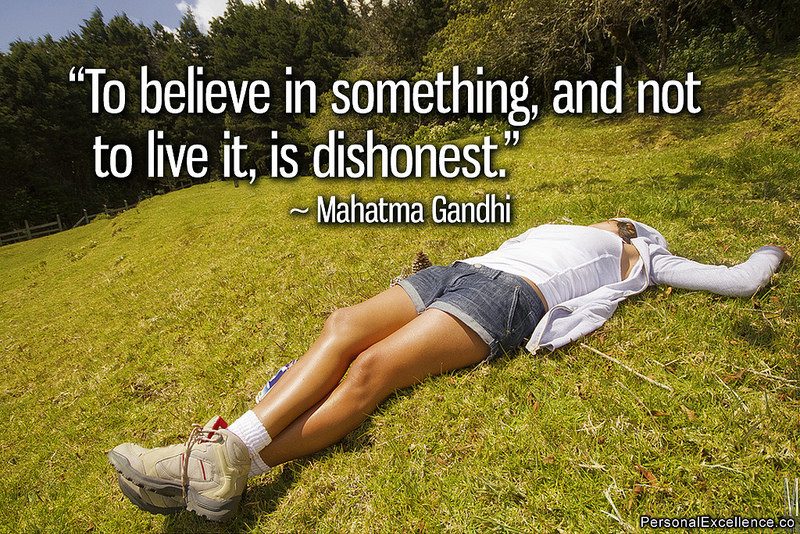

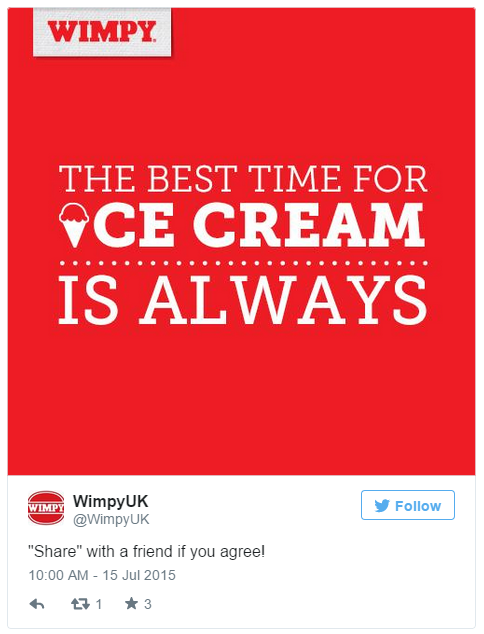
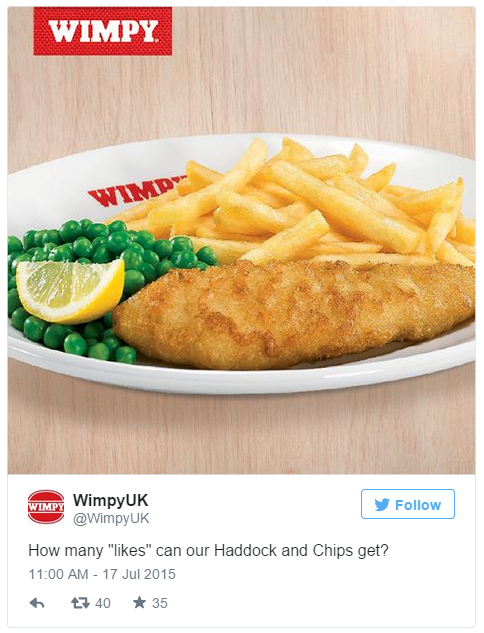
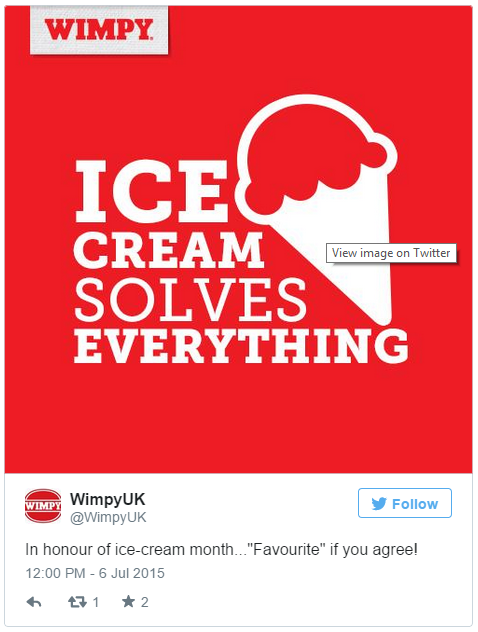
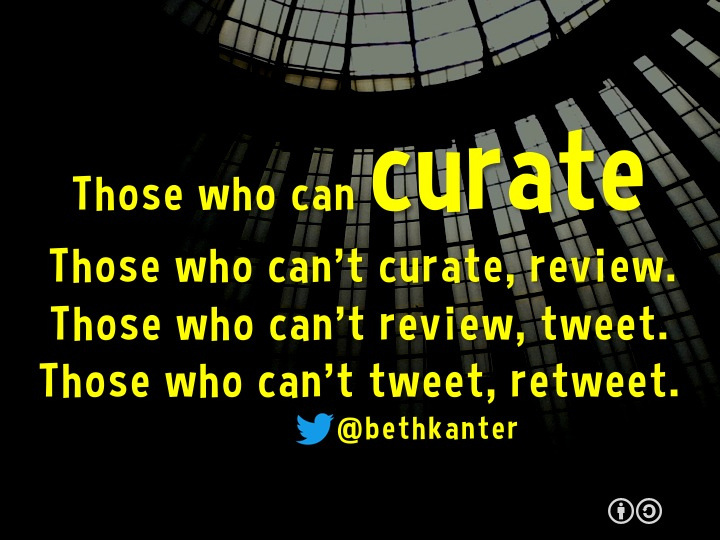
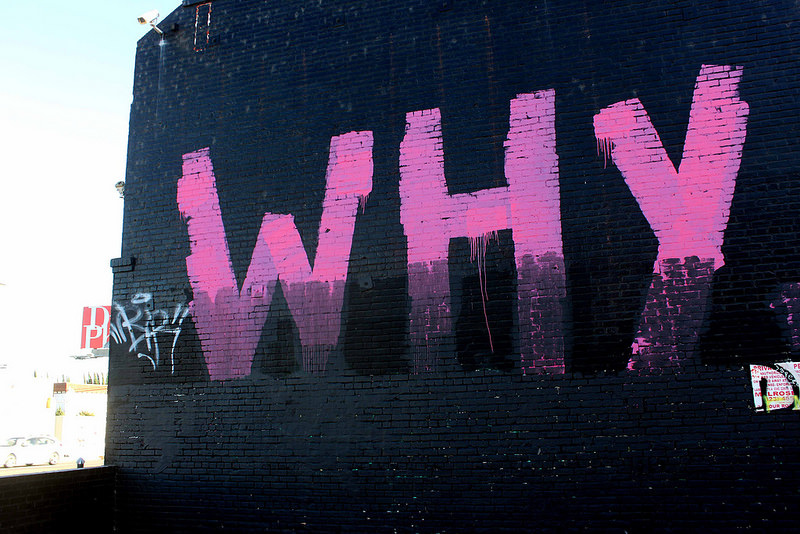

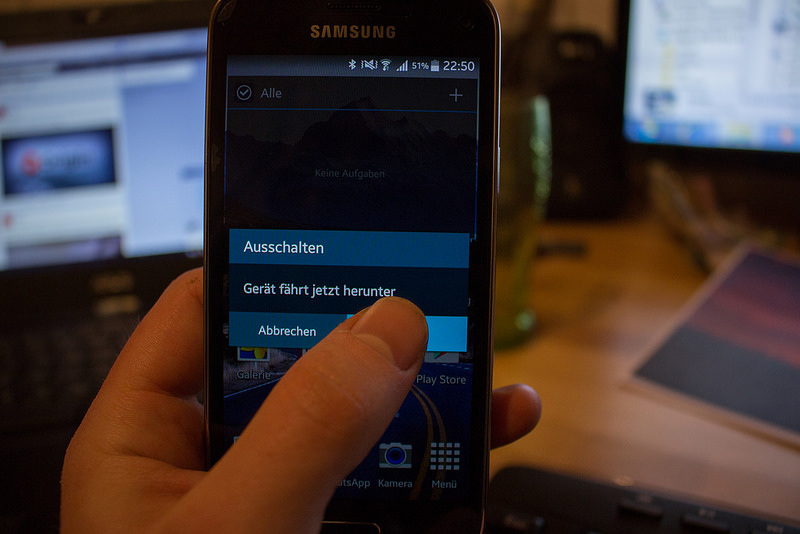
 RSS Feed
RSS Feed
